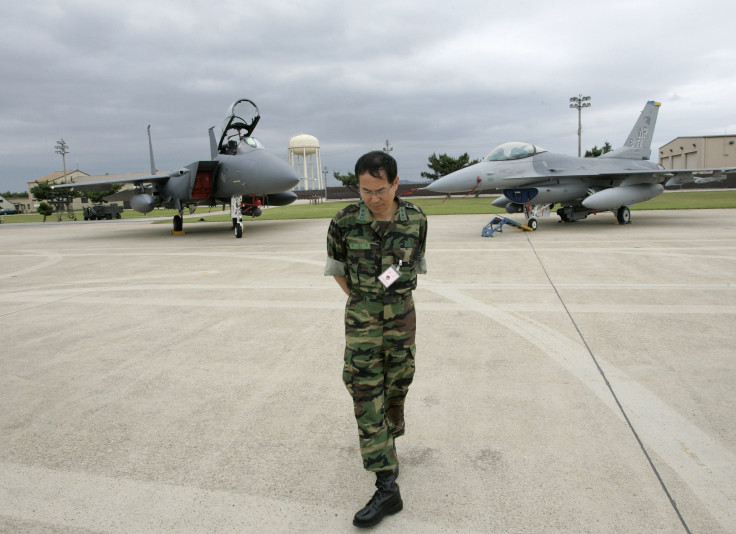Boeing (BA) F-15 Silent Eagle: South Korean Air Force Eyeing US Fighter Jet To Enhance Seoul's Military Power

As rising tensions between North Korea and South Korea prompt Seoul to enhance its military prowess by acquiring a new fleet of fighter jets, South Korean officials are eyeing The Boeing Company's (NYSE:BA) F-15 Silent Eagle, or F-15 SE.
The F-15 SE is competing against other next-generation fighter jets like Lockheed Martin Corporation's (NYSE:LMT) F-35 and the EADS NV (EPA:EAD) Eurofighter for the $7.2 billion deal to sell 60 aircraft to South Korea, but Boeing's F-15 SE may have an edge because it is priced within Seoul’s budget, South Korea's Yonhap News Agency reported Thursday.
A final decision on whether to purchase the fighter jet will be made in September. If a deal with Boeing is confirmed, the Chicago company will provide a stealthy variation of the F-15 SE between 2017 and 2021 that will replace the South Korean Air Force’s aging fleet of F-4s and F-5s.
Boeing said if it wins the deal, the F-15 SE being purchased by South Korea will be fitted with one of the world’s most advanced radar systems known as Active Electronically Scanned Array, which Raytheon Company (NYSE:RTN) has been developing.
"The Silent Eagle is a low-risk, affordable solution based on the combat-proven F-15 family of fighter jets," the company said in a statement. "Using a modular-design approach, the Silent Eagle offers unique aerodynamic, avionics and radar cross-section (RCS) reduction features that provide the user with maximum flexibility."
There is a growing need to enhance South Korea's military edge as it is encircled by threats from China and North Korea, especially after Pyongyang’s nuclear test in February. Further, China and Japan have been building and enhancing their military capabilities with stealth fighter jets and improved navies as the two countries want to assert their power over disputed territories in the South China Sea.
In July, Japan warned China not to expand exploration in the East Sea. "If the Chinese side is to proceed unilaterally with development in the area over which there are conflicting claims, Japan would never accept it," Japanese Chief Cabinet Secretary Yoshihide Suga said at a news conference.
South Korea also has disputes with Japan over the Dokdo Islets. Because of these growing tensions in the region, South Korea wants to boost its military capabilities to avoid being eclipsed by neighboring forces.
© Copyright IBTimes 2024. All rights reserved.












